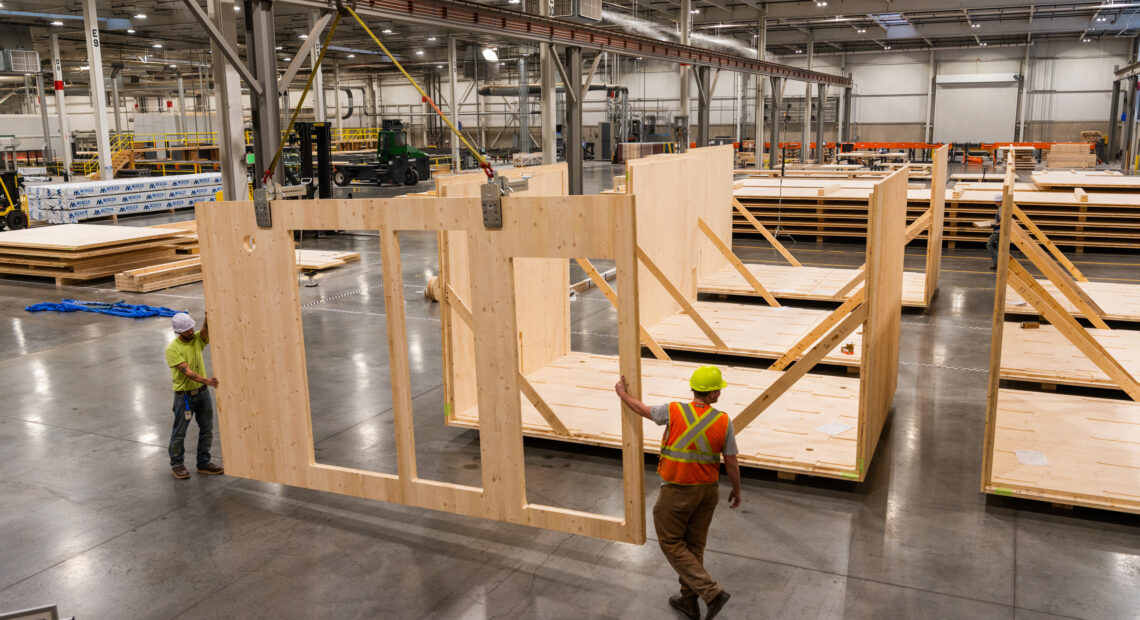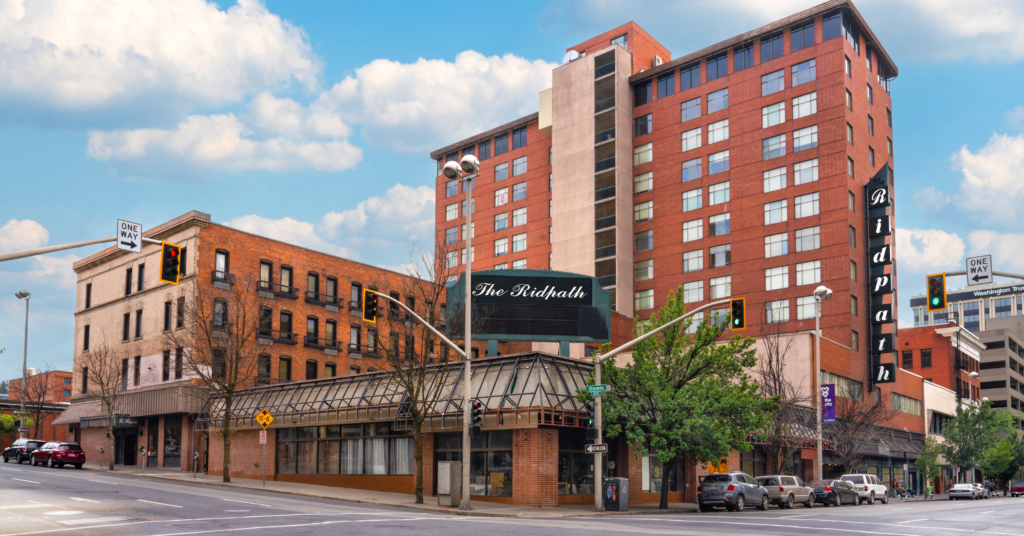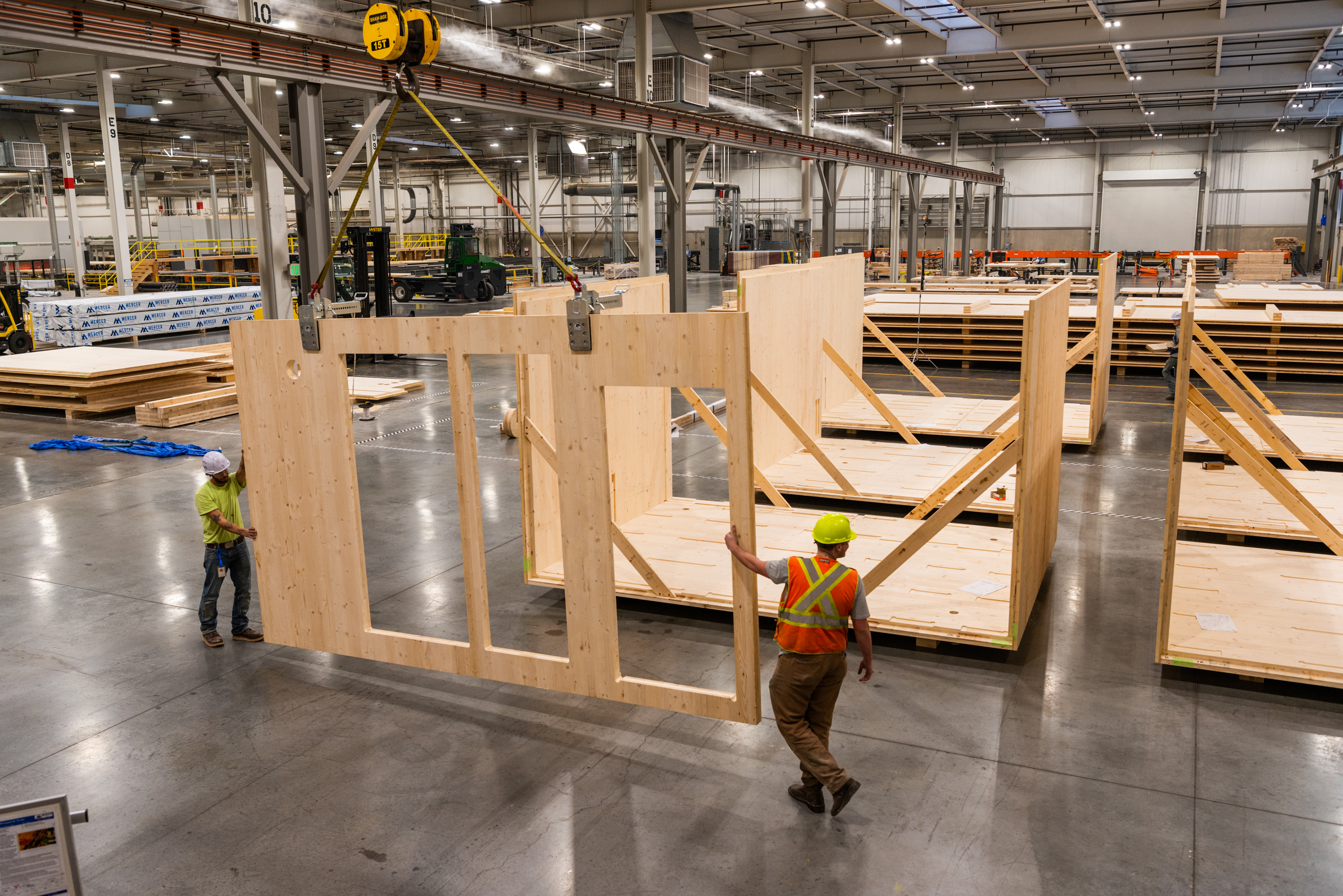
New congressional tax package has incentive for more Northwest housing
Listen
(Runtime 1:01)
Read
A $78 billion bipartisan tax package unveiled by Congressional negotiators this week includes a provision that its backers hope will spur home building nationwide.
The Tax Relief for American Families and Workers Act of 2024 would expand the Low Income Housing Tax Credit program, which offers incentives for building homes for lower-income households.
“Whether you’re in Spokane, Pullman or Seattle, this is a problem and people want to see more affordable units being built because we need to house workforce, we need to house seniors, we need more affordable housing,” said Sen. Maria Cantwell (D-Washington), who pushed for the expansion.

Sen. Maria Cantwell, D-Wash., said she had to fight to get the Low Income Housing Tax Credit expansion as part of the overall tax package amid a divided Congress. (AP Photo / Lindsey Wasson)
If passed, Cantwell said the expansion to the Low Income Housing Tax Credit would fund more than 200,000 new housing units nationwide and 14,000 units in the Pacific Northwest.
Claire Duncan is the executive director of First Story, a Northwest nonprofit that helps middle-income earners with home ownership.
“In every community where we build in Washington, Idaho or Oregon, we have watched home prices increase by 40% and 50% over the last three years,” Duncan said.
The First Story program allows people to apply for a 30-year, zero down, zero interest home loan. Houses are then constructed by the nonprofit’s partner, Hayden Homes.
Despite how the housing crisis has increased over the past decades, Duncan said demand for First Story’s services has skyrocketed since the COVID-19 pandemic.
“We’re seeing a lot of teachers apply for our homes, lots of folks working in the medical industry, nurses, folks who own their own business,” Duncan said. “These folks are making $59-$79,000 a year and they can’t afford a home in their community, so we have a really big problem going on here, not just in the Pacific Northwest, but nationwide.”
Todd Beyreuther works as the director of product development at Mercer Mass Timber. “The housing problem is so big and so obvious that we have to address this at scale,” he said.
To drive down construction costs, Beyreuther said subsidizing construction through tax incentives like the Low Income Housing Tax Credit, could help.
Timber and construction companies would benefit from the incentive expansion as it could mean more business for the industry.
“I’d like to see this resource put to work where we’re not only driving down the costs for people to have more affordable places to live, but we’re stimulating job growth and economic activity, to boot,” Cantwell said.
Beyreuther also serves on the Washington State Building Code Council, and spent a week in Olympia meeting with legislators to advocate for simplifying Washington’s building code to allow for more middle housing, like townhomes and other medium sized dwellings somewhere between a single home and an apartment complex.
Some state level solutions are already in the works.
A bill sponsored by Rep. Sam Low (R-Lake Stevens) would allow for the building of detached accessory dwelling units (ADUs), often called guest houses or mother-in-law units, on any size lot regardless of existing zoning restrictions.
“This bipartisan bill would not only increase housing options for struggling Washingtonians, but also inject much-needed vitality into rural communities across the state,” said Low in a press release. “Washingtonians are counting on us to act, not wait for another session.”
Rep. April Connors (R-Kennewick) is behind a bill that would provide a new tax exemption to build affordable housing units on public lands too close to development to be used for timber harvests.
“Washington has the fewest housing units per household in the nation and nearly half of renters spend a third of their income on rent,” said Connors in a press release. “This legislation would help solve a real problem for the Washington State Department of Natural Resources while, at the same time, make housing more accessible and affordable for everyday Washington families.”
Back in Washington D.C., the federal tax package is still being voted on. Despite how tough it was to get the low-income housing tax credit on the bill because of a divided Congress, “We were successful in gaining bipartisan support and a lot of what I would call advocates across the country, from mayors and community leaders and impacted individuals, who really spoke up and educated people about these projects,” Cantwell said.
The program allows communities to decide what kind of housing they want to build, Cantwell said.
The Chuck Austin Place Veterans Housing and Services Center in Yakima has 41 units for formerly homeless vets, and more than half of the funding for the project came from the Low Income Housing Tax Credit program.
The tax credit was also used to convert the historic Ridpath Hotel in Spokane into the Ridpath Club Apartments; 184 affordable housing units in downtown Spokane near public transportation, schools and community services.

As of 2022, the revitalized apartment complex has 102 micro apartments, 45 studio apartments, 58 one-bedroom apartments, and one two-bedroom loft according to the Affordable Housing Tax Credit Coalition (AHTCC) website. (Credit: AHTCC)
Soaring rents and a drop in Coronavirus pandemic assistance have caused homelessness in the U.S. to increase by 12% over the past year, according to the latest report by the Department of Housing and Urban Development.
“The fact that we don’t have affordable housing doesn’t mean the cost of those populations disappears,” Cantwell said. “It’s really, really deleterious to those families and to our economy overall.”
Washington will need 1.1 million new housing units for all income levels to meet demand over the next 20 years, according to the Washington State Department of Commerce.
















